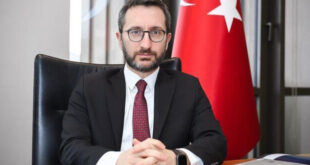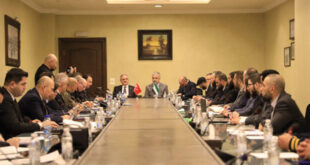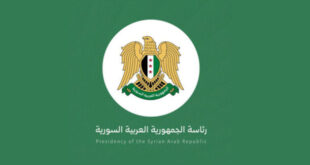Moscow, SANA – Russia’s Foreign Ministry called upon UN humanitarian organizations to continue cooperation with the Syrian government and timely notify the latter of “the volumes and the nature” of the humanitarian consignments bound for Syria.
In a statement published on its official website Thursday, the Ministry added that Russia has supported the UNSC draft resolution no. 2191 on the humanitarian situation in Syria “with a view to employ all the tools at the disposal of the international community to alleviate the suffering of Syrian civilians.”
It noted that Russia, from the very beginning, has called for adopting a resolution which “allows monitoring the loading of all humanitarian relief consignments of the United Nations humanitarian agencies” from the neighboring countries, based on the need of cooperation between the Syrian government and international agencies on the delivery of humanitarian aid through borders and the unbiased inspection of its content to confirm its nature.
“Moscow reckons on the United Nations’ humanitarian agencies responsible for directing aid to the Syrian Arab Republic to continue to engage closely with Damascus, including by timely notifications about the volumes and nature of the above-mentioned assistance. We also hope that such measures will contribute to the implementation of peaceful settlement efforts by UN Special Envoy for Syria Staffan de Mistura,” Russian Foreign Ministry said.
The Russian ministry reiterated that the key to successful humanitarian work in Syria “lies in the sphere of negotiations between the sides in Syria on the political settlement of the crisis,” adding that Russia is fully committed to having such negotiations resumed.
On Wednesday, the UNSC adopted resolution no.2191 renewing its decisions included in paragraphs 2 and 3 of Resolution no. 2165 on the issue of entry and delivery of humanitarian aid to Syrians whether, through operations taking place inside the country in the framework of the Response Plan and in coordination with the Syrian government and the Office for the Coordination of Humanitarian Affairs (OCHA), or through the so-called Troika of Security Council ambassadors in “operations through borders.”
Rasha Raslan/Haifa Said
 Syrian Arab News Agency S A N A
Syrian Arab News Agency S A N A




